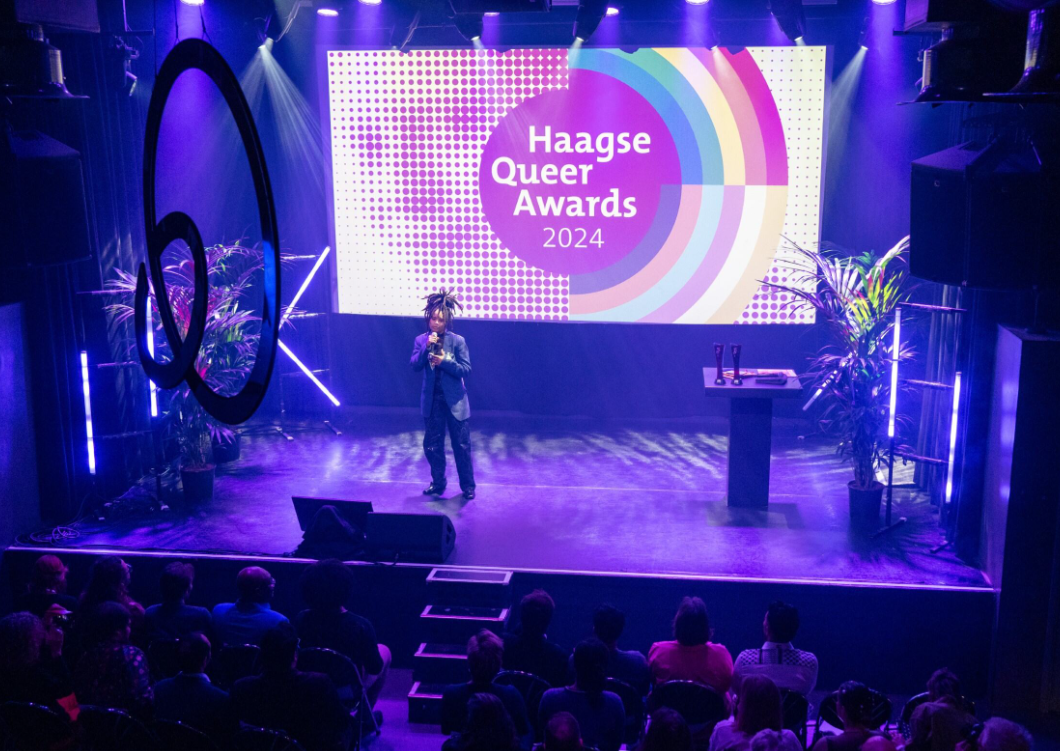The Hague

Policy & Goal
The municipality of The Hague has adopted a proactive approach to queer policy with goals centered on inclusivity, safety, equality and visibility for queer residents. The city’s primary objectives include fostering a supportive environment where all residents, regard- less of gender identity or sexual orientation, feel safe and respected. This involves tackling issues such as discrimination, violence, and social exclusion faced by queer individuals,
particularly queer youth and people of color, queer elderly persons, trans-and gender diverse persons and queer refu- gees. The municipality encourages support and welfare organizations to promote queer-sensitive practices among their staff to improve support for queer individuals. The city further promotes inclusive policies through subsidies to organizations that support gender and queer equality, enabling more programs that advocate for the rights and well- being of queer communities.
For how long has there been a specific queer emancipation policy?
The municipality of The Hague has actively pursued queer policies since the 1980s. This early commitment became more concrete in 1986, when the city council adopted proposals to support and protect the rights of queer residents, culminating in the establishment of the International Homo-monument in 1993 to honor queer individuals worldwide who have faced oppression.
Focus Areas
Short Term
- Create a network that includes both care and support institutions as well as queer advocacy organizations to exchange and enhance knowledge, skills, and support regarding gender identity
- Increase queer specific knowledge, sensitivity and skills of healthcare providers and support professionals.
- Promote strong collaborations between queer organizations and other relevant organizations by facilitating networking events and encouraging the exchange of knowledge and experiences.
Long Term
- The Hague queer network consists of various new and established organizations which support each other.
- Various municipal departments work together to promote queer emancipation in the social domain.
- Healthcare is accessible, and professionals are more sensitive too queer persons.


The department of Inclusion focuses on fostering inclusivity and social cohesion across diverse communities within the municipality, working to ensure equal opportunities and a sense of belonging for all residents. Regardless of back- ground, identity, or status. The queer emancipation policy is part of The Hague’s broader inclusion policy. This inte- grated approach aims to ensure that queer rights and needs are addressed within the municipality’s overarching framework for inclusivity. By embedding queer emancipation within the inclusivity policy, The Hague is aiming that var- ious departments—such as public health, safety, youth services, and social welfare, education—work together to cre- ate a supportive environment for queer residents.
Collobaration partners
Some text or
- Black Queer Holland
- Rainbow Den Haag: www.rainbowdenhaag.nl
- COC Haaglanden: www.cochaaglanden.nl
- Queer Mind: www.stichtingqueermind.nl
- PEP: www.pepdenhaag.nl
- Police (Pink in Blue): politie-roze in blauw
- The Hang-Out 070: www.thehang-out070.nl
- Hindostaans en Queer: www.hindostaansenqueer.nl
- Queer aan Zee: www.queeraanzee.wordpress.com
- SHOP: www.shop-denhaag.nl
- Haagse Hogeschool: www.dehaagsehogeschool.nl
- International Homomonument The Hague: www.ihdh.nl
Implementation of the emancipation policy
Queer emancipation is part of inclusion policy and touches on many different aspects of policy and society. Therefore, Team Inclusion works on an integrated approach with other policy departments in the municipality.
